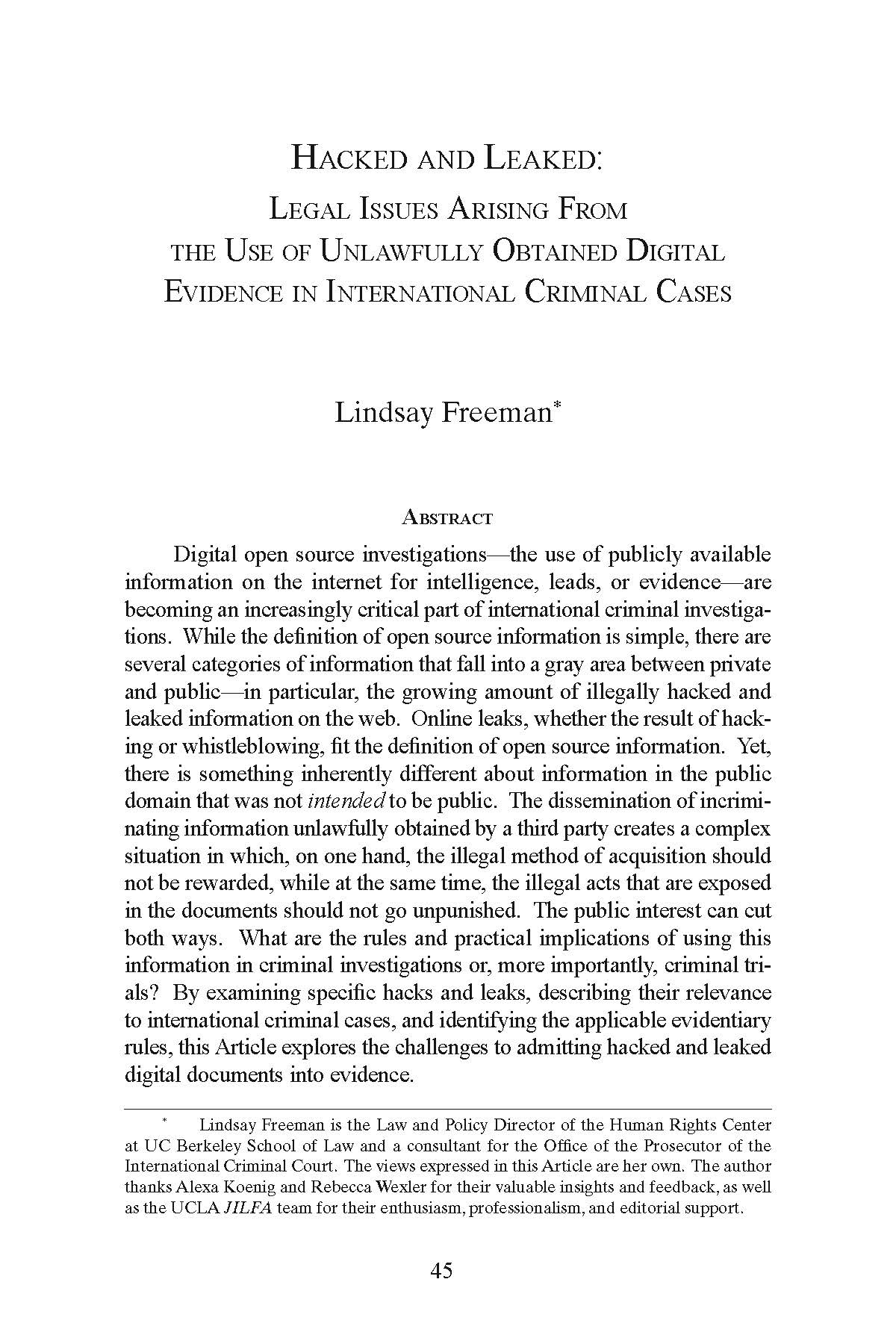Hacked and Leaked: Legal Issues Arising From the Use of Unlawfully Obtained Digital Evidence in International Criminal Cases
Download PDFSummary
Digital open source investigations — the use of publicly available information on the internet for intelligence, leads, or evidence — are becoming an increasingly critical part of international criminal investigations. While the definition of open source information is simple, there are several categories of information that fall into a gray area between private and public — in particular, the growing amount of illegally hacked and leaked information on the web. Online leaks, whether the result of hacking or whistleblowing, fit the definition of open source information. Yet, there is something inherently different about information in the public domain that was not intended to be public. The dissemination of incriminating information unlawfully obtained by a third party creates a complex situation in which, on one hand, the illegal method of acquisition should not be rewarded, while at the same time, the illegal acts that are exposed in the documents should not go unpunished. The public interest can cut both ways. What are the rules and practical implications of using this information in criminal investigations or, more importantly, criminal trials? By examining specific hacks and leaks, describing their relevance to international criminal cases, and identifying the applicable evidentiary rules, this Article explores the challenges to admitting hacked and leaked digital documents into evidence.

